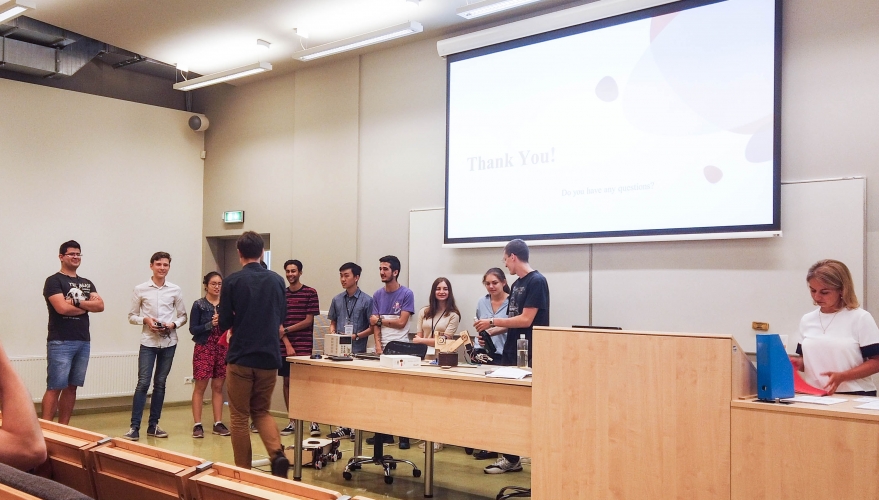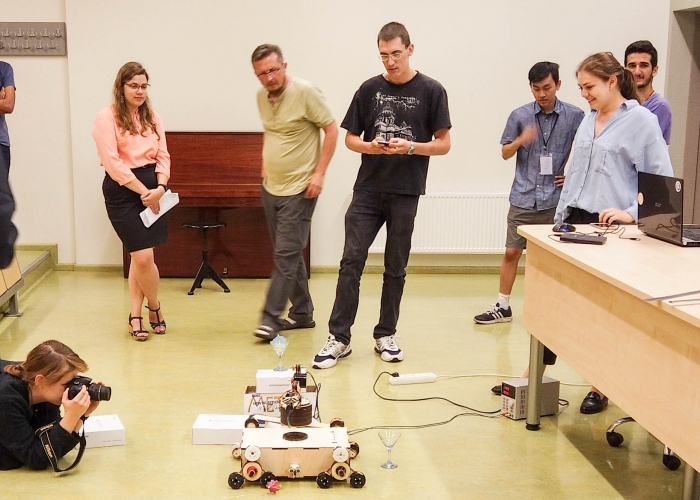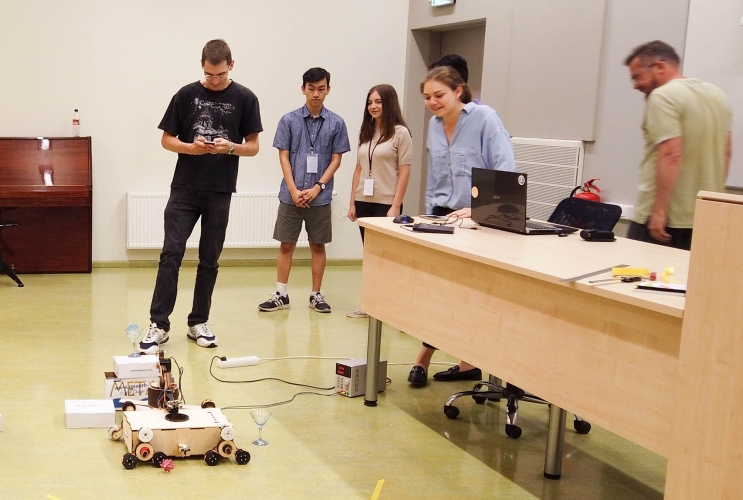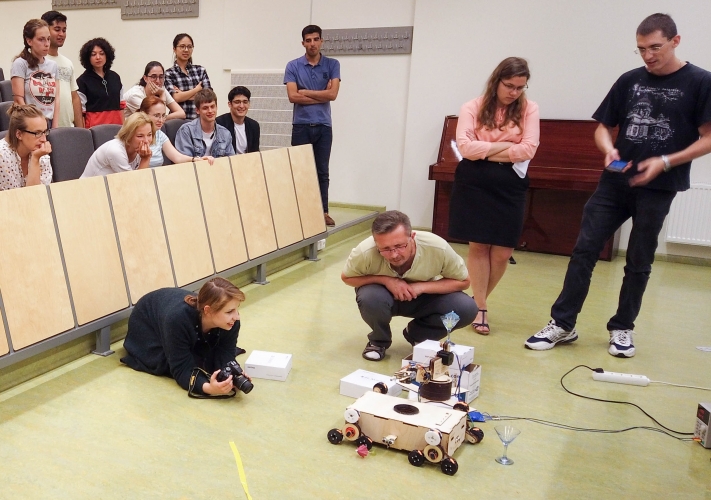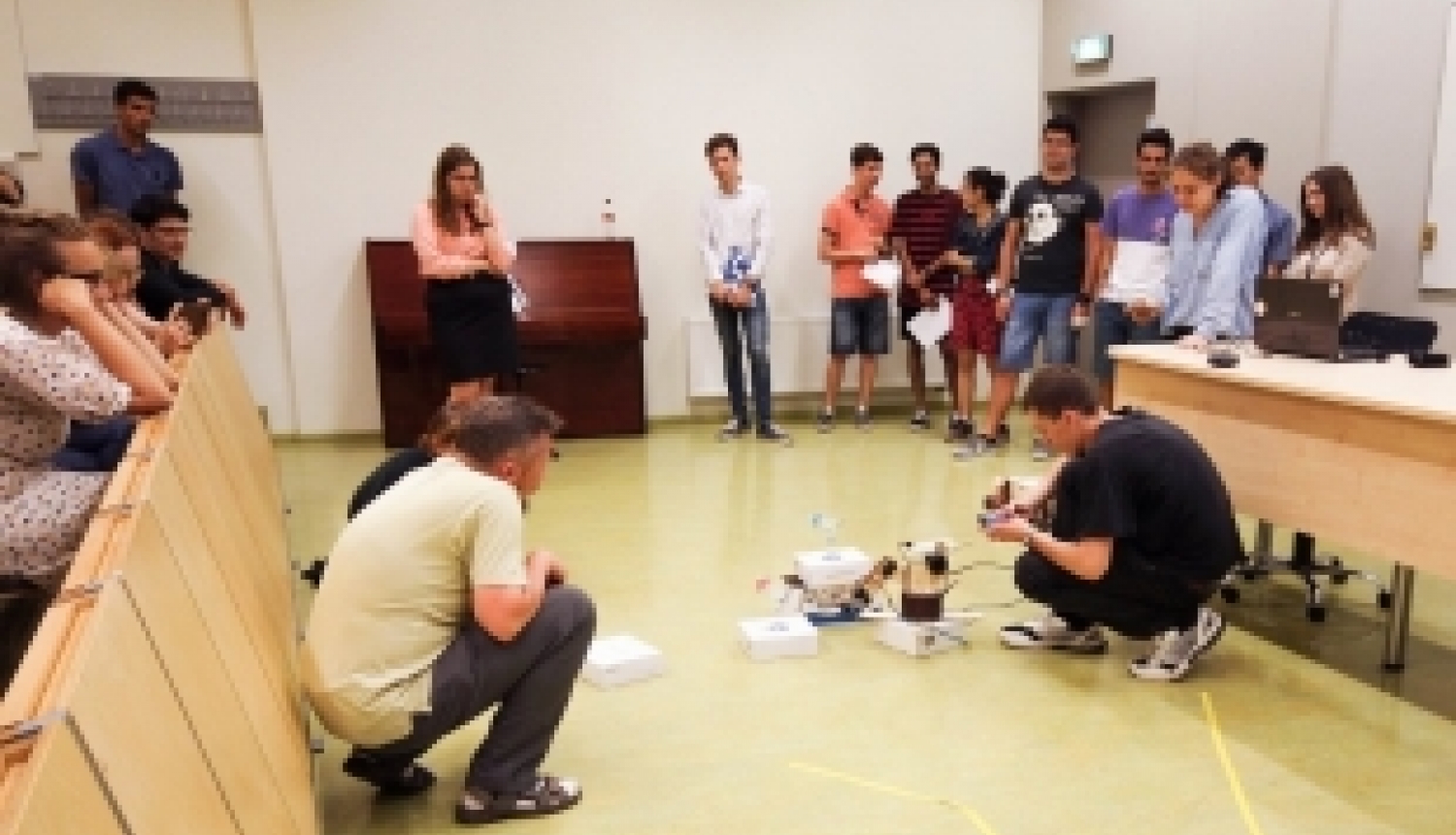From 1 – 27 July 2019, Riga Technical University (RTU) summer school “Robotics. Real Life Applications of Intelligent Design” took place, where the participants were acquainted with development of robotics and related industries in Latvia, improved their theoretical and practical knowledge in robotics, artificial intelligence, 3D modelling, development of prototypes and real models, and the guests were also acquainted with history, language and culture of Latvia.
The language of instruction during the summer school was English, and the school programme included theoretical lectures, practical classes and study tours in companies of the industry. The learning process of the students was organised in RTU Laboratory building, RTU Design Laboratory and RTU Latvenergo Creative Laboratory.
The summer school “Robotics. Real Life Applications of Intelligent Design” lasted for 4 weeks, and the plan was specifically developed in a way that the participants could acquire new knowledge every week, adding the newly acquired knowledge to the knowledge acquired in previous lectures and practical classes. The idea of this summer school was to acquaint its participants with the entire process of creating robots – from an idea to a finished, functioning robot.
In the first week, the students learned history and culture of Latvia, and were taught basics of Latvian language. In the second half of the week, they attended lectures, dedicated to project development, robot movement and artificial intelligence. Before development of projects, the participants were split into two groups, based on their knowledge and skills. At the end of the first week, the participants presented their ideas, they would like to implement during the summer school. This year, organizers of the summer school set a specific task for the participants – mutual cooperation. The task included that both robots have to be able to mutually cooperate and perform a common task, which pushed both groups of participants not only to create their own robot, but also agree on the points of contact of both teams.
In the second week, the summer school participants created the necessary parts of their robots, using the 3D CAD technical drawing-designing program Soldiworks, and also acquired basic skills of 3D printing and created the first scale prototypes.
During the third week of the summer school, the students learned prototyping of electronic devices (robot movements and generation of sensors), soldering, troubleshooting of system software errors, and also participated in a tournament of mini sumo robots, where winners of the first three places received prizes – sets of mini sumo robot SumoBoy 2.0 from the company RobotNest.
The last week of the summer school was dedicated to development of students projects and presentation of work results, which took place on 26 July.
During the summer school, the students were offered a unique opportunity to become acquainted with Latvian companies of robotics and related industries, going on study tours. The students visited such companies as Gamechanger Audio, HansaMatrix, Mass Portal and SAF Tehnika.
The participants of the summer school not only studied and worked practically, but also participated in specifically organised entertainment and cultural events, which gave the students a great chance to get to know Latvia, its historical traditions, culture and beautiful nature better. Within the framework of the summer school "Robotics. Real Life Applications of Intelligent Design”, the students had an opportunity to learn some of the not so old history of Latvia by visiting the secret Soviet bunker in Ligatne, catch emotions at the adventure park Tarzāns in Sigulda, discover the history of cars at Riga Motor Museum, feel the daily life and ancient culture of a Latvian small town during a recreational trip to Koknese, and also to experience unforgettable moments during a 30 km boat trip on the Gauja River and a 10 km hike in forests of Gauja National Park.
